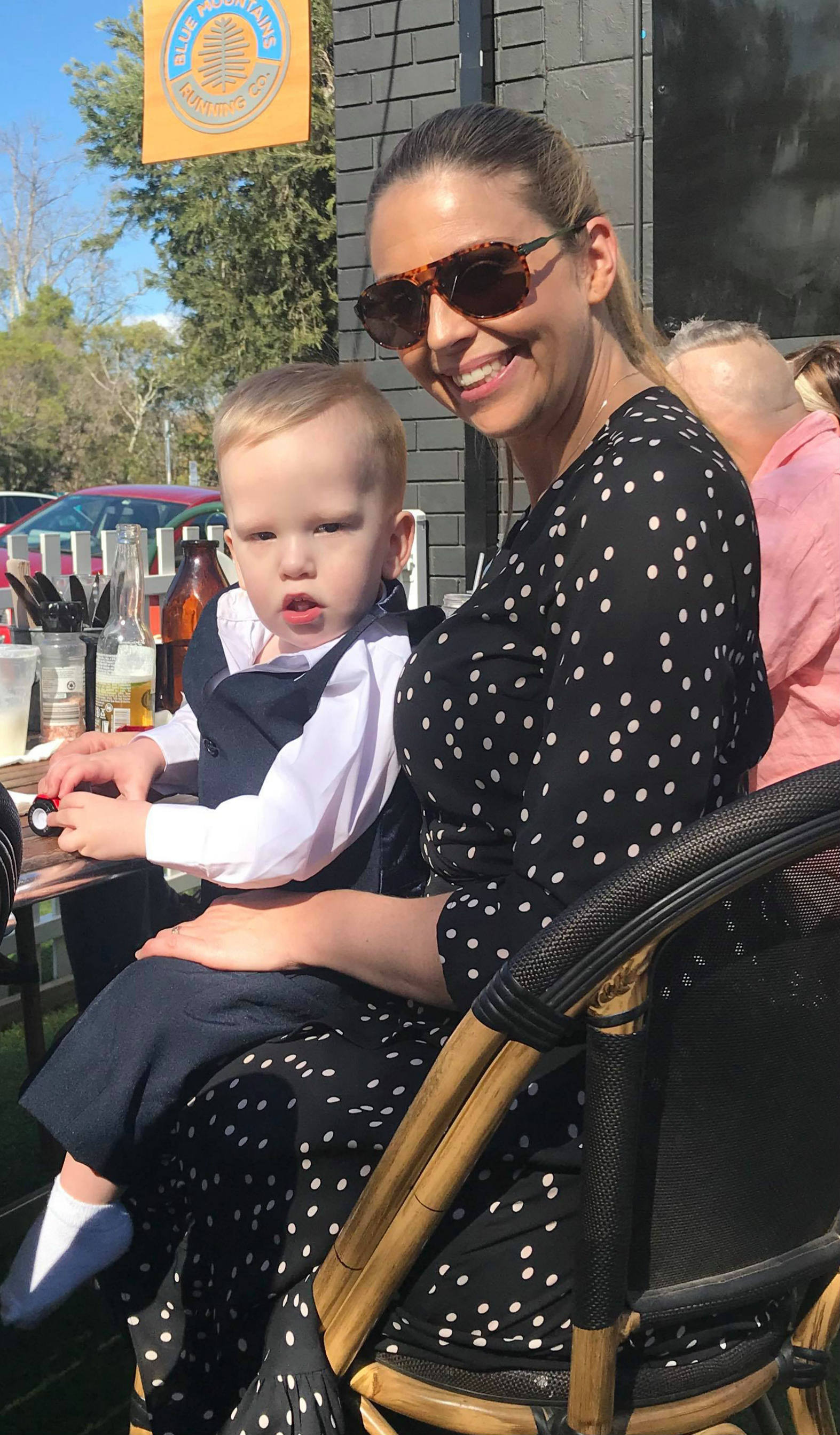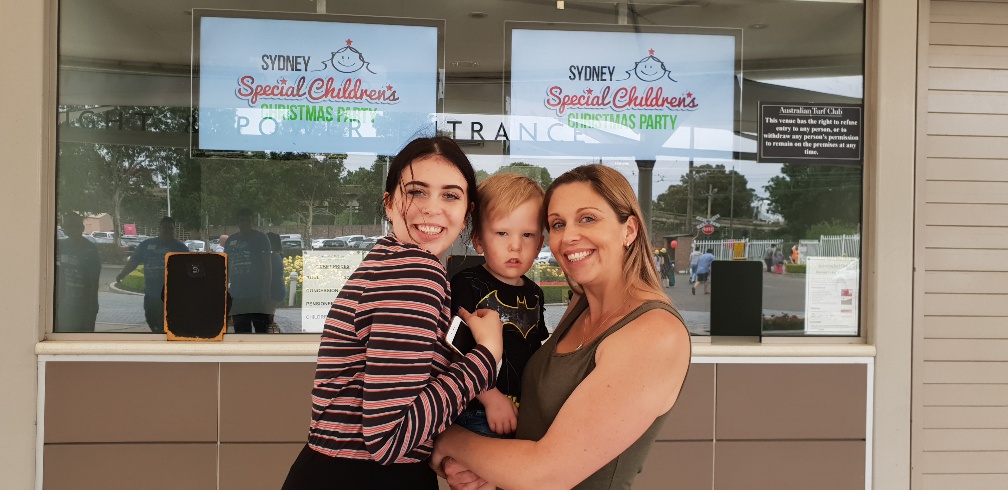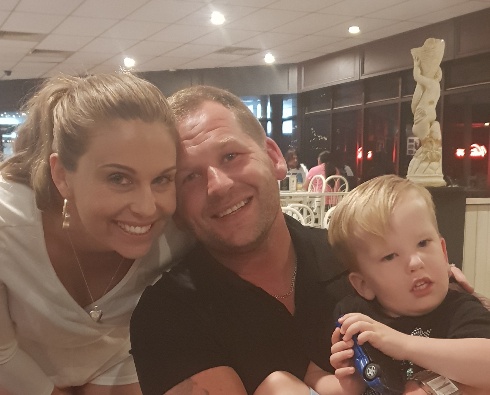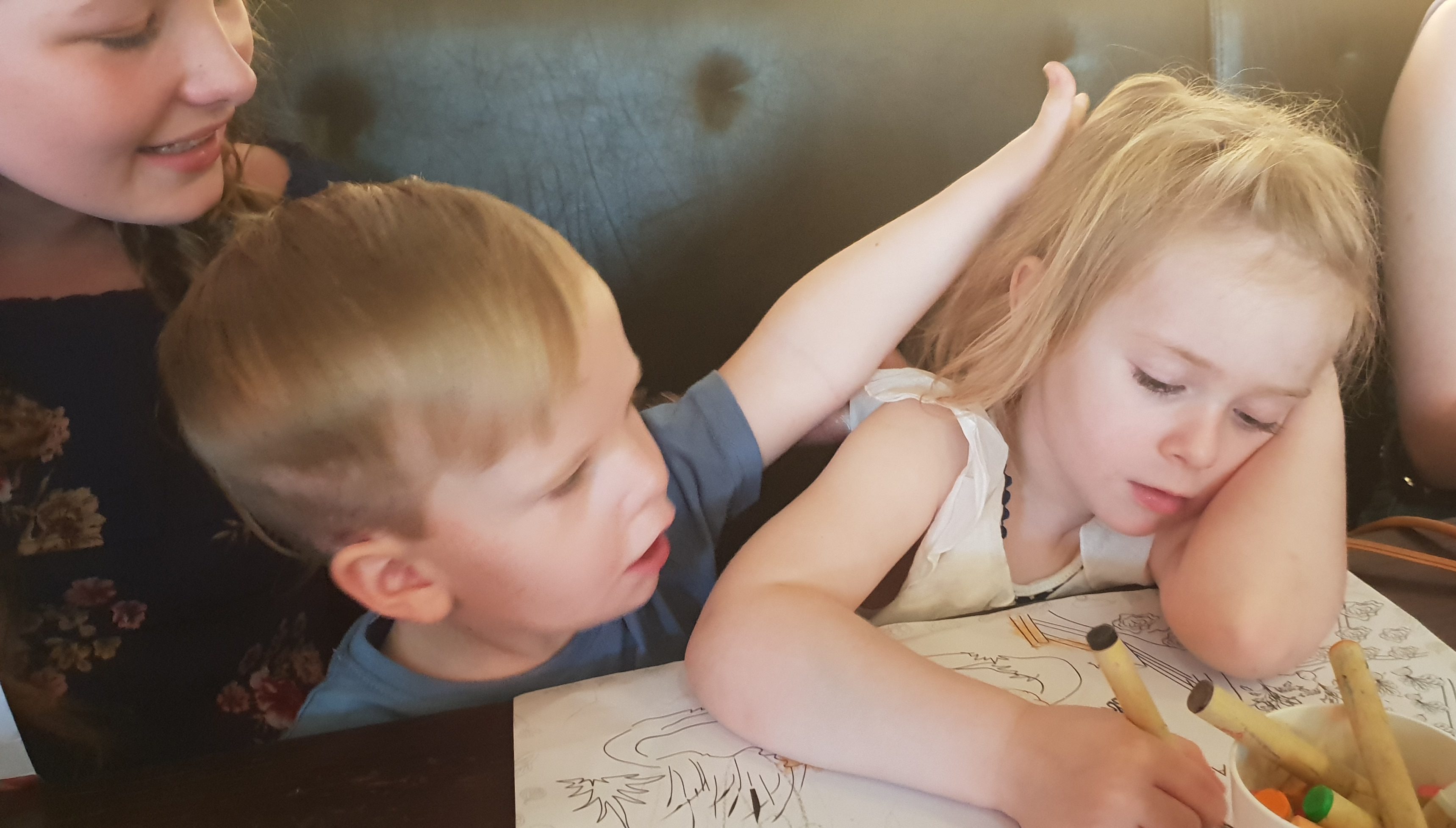Team Connor – How we parent our child with Myotonic Muscular Dystrophy
An interview with Nikki Rabold-Cowley
Can you tell me a little about yourself and your family Nikki?
I’m 37, and work as a clinical nurse specialist in a neonatal ICU. My husband Peter and I have 5 children, ranging from 18 to our little Connor who is now 2.5 years old. We both value family and friends highly. Neither of us have family close by. Pete is from the UK so all of his family is overseas. My parents are in QLD and rural NSW. We live in Western Sydney, both work full time and life is always busy, but we wouldn’t change it for the world.
Your son Connor has MMD (Myotonic Muscular Dystrophy). How long ago was he diagnosed and what was the process of diagnosis like?

Connor was born at 34 weeks and spent 3 weeks in the NICU, the NICU in which I work. Initially I just thought he was acting a little premature but by day 3 I knew that something wasn’t right. He had poor tone, was not moving very much, was really sleepy and was not able to suck or swallow. My colleagues were being very supportive but were also trying not to worry me. They knew something wasn’t right and to tell the truth, I knew that something was wrong as well…. So started the journey.
Test after test, all coming back negative, lumbar punctures, MRIs, ultrasounds and so many blood tests. Having a medical background I think made the whole experience so much worse, every time they mentioned something I started researching it and my whole world fell apart so many times, over and over again. Each day he kept getting stronger, he just kept improving, week two saw a huge step back, when he was transferred to the children’s hospital, but again everything looked positive, and tests were negative and doctors were happy with him and he was sent back to the NICU.
By week 3, I was just ready to take my baby home and was willing to do whatever it took to make that happen. Connor went home breast feeding but was not gaining weight so needed to have top ups for about 4 months. I breast fed him till 18 months, something that I am very proud of. He was still very small and did not move as much as we would have liked, and as the weeks passed we were still waiting on seeing that first smile.
At 4 months we were contacted by the genetics team who had seen Connor in the NICU and just wanted to follow up with us. The geneticist explained her concerns to us and asked to send away a for few more tests, one of which was for Myotonic Dystrophy, she reassured me that it was just to rule it out as Connor had improved so much over the last few weeks…. 9 days later we got the call. Connor has tested positive for Myotonic Dystrophy. A strange sense of relief fell over me…. Finally an answer.
Then my heart felt like it literally broke. How? Why? So many questions and thoughts flooded my mind. Was it my fault? Was it my husband? We both had other children, did they have it? What would we do? What would it mean for his future? For our future? Would he live? Would he be in pain? Would he ever drive? Would he live alone? Finish school?…. SO MANY QUESTIONS. Who could help me answer these questions? Where could I find good information as Dr Google isn’t always helpful!
Peter and I were both tested and 3 weeks later the results showed that I also had Myotonic Dystrophy, for 35 yrs. I’d been “Normal” but now I wasn’t. I can’t explain how I felt, numb, useless, sick. I even offered my husband a get out of jail free card. When he married me and didn’t know I was ‘faulty’, I felt he had a right to a refund. He kissed me and told me he loved me no matter what.
Knowing that Myotonic Dystrophy is a hereditary genetic condition I felt that it was important to inform as many family members as I could, so that they could make informed decisions and not have to go through what our family had just been through.
Within 3 days I had found out about 27 other individuals, over 5 generations, some of whom knew about the condition 30 years before. Total dismay, confusion, I was gobsmacked. One family member said “I think I told your mum”. Since finding out, my mum has also been diagnosed along with my brother. My daughter tested negative which is great news for her future. Our family has been referred to a genetic specialist to look for common issues associated with the condition.
I believe Connor attends childcare, how has this experience been for the family?
Connor has been in day-care since he was 13 months old. We are so blessed to have found a great centre who have been extremely supportive to our family. They are happy to help him with his weekly exercises and daily music therapy and have also helped us with our fundraising efforts. They have helped to facilitate time for Connor’s therapists to come to the centre and offer guidance and education. We know that not all families have as much luck as we have had in finding supportive services. My advice would be to advocate and don’t settle for anything less than the best. Good support is out there, you may need to fight for it or search for it, but it is out there.

Are there any issues that have been hard? How have you managed to deal with them?
Finding out that my family knew about the condition 30 years before was really hard to deal with. I was so angry at them for not understanding how important it was – and the pain not knowing caused our family. I felt that our family was ashamed and I didn’t want our son to ever feel that way. But I turned that anger into hope. I used that pain to help raise awareness about the condition and to help raise money to support research and advocacy. To date we have raised close to 10k over the last 2 years, something we are very proud of.
We have encountered a lack of understanding amongst the general medical community regarding Myotonic Dystrophy. This has at times caused our family great distress. On one occasion we were told by a doctor that Connor didn’t have Myotonic Dystrophy and that his test had been negative. On another occasion I asked a GP if she was familiar with the condition and her response was “Yes, it’s a bit of muscle weakness”.
Having a strong medical background has helped our family significantly, something that most families don’t have. We have labelled Connor’s treating team as “Team Connor”. Not just anyone can join our team, and some people have only been part of our team for a short period. It has taken us 2 years to get our team just right. Not only do they have to be good for Connor but they have to fit our family. They have to show that they care for our family as a whole and be keen to try new things and to research. I always tell other families to build a good team, a supportive network and to not settle for second best.
What’s the hardest thing about having a child with disability?
Lack of understanding in the community. I know that people don’t try to upset us and curiosity is human nature but it’s really hard sometimes. Connor’s condition causes facial weakness and his smile is unique. To us it’s precious and so easy to see, but to strangers Connor can look “cranky” or “serious”. People say this to us a lot. I used to get really upset, now I just see it as a chance to teach someone about his condition. I tell them that he has a muscular condition and that you have to look a little harder to see his smile. It doesn’t take long for people to see it and I always say our baby boy is changing the world one person at a time.
The NDIS has been difficult. Dealing with them at times has brought me to tears. I’m so grateful for the financial support but getting what you need and getting them to understand is really difficult at times and I feel some families wouldn’t have the knowledge or the education to fight that battle.
What’s been the positives for Connor, for you and your family?

Connor brings out the best in everyone around him, he is so smart and cheeky and is always happy (well, most of the time). He has made his dad and I better people. Our family is stronger.
Underlying symptoms from the condition have been identified in myself and knowing that could save my life. Connor has been through more in his short life than what some people go through in their whole lives. I wouldn’t say that there are positives for Connor, but he has achieved so much and he is so strong and resilient. I’m so proud to be his Mummy.
How does Connor’s MMD affect the family dynamics?
His diagnosis has obviously taken time away from our other children. They never complain about it but I know it must be hard for them sometimes. During winter Connor tends to be a little more unwell then most kids his age and with no family support close by this takes a toll on Pete and my work commitments. We have a very busy schedule with Connor’s appointments and therapies and this, at times, has meant less social time for us with our friends and even with each other. As I said previously, our family is stronger thanks to Connor and his condition.
What helps Connor be his best self?
Team Connor. The A team. And his dedicated family.

Music therapy has worked wonders for Connor as well. We saw instant changes in Connor when we initially started and have continued this treatment on a daily basis.
Early intervention is a wonderful thing, sometimes I think I do too much with Connor but he loves it and is thriving. We do weekly physio, speech, OT, music therapy (group) and gymbaroo. We have also done swimming, open play groups, reading time at the local library and are currently looking into Riding for Disabled. Try lots of things and connect with local supports to see what is available in your area.
What are you goals and dreams for Connor’s future, say in 5 or 10 years’ time?
My dreams for Connor keep changing. I didn’t want to get my hopes up initially. We don’t know what Connor’s future looks like. We are planning on sending Connor to mainstream primary school, as for high school, we aren’t sure yet. We hope that Connor will continue to get stronger and that the muscle weakness doesn’t start to affect him significantly in his teenage years. We hope one day that Connor will drive, work, find love and we hope that he will live independently. The future is promising and medicine is advancing rapidly. Gene therapy looks promising and our aim as his parents is to give him the best opportunities to be the best Connor that he can be and to keep him as healthy as we can so that when a cure is found, Connor will ready.
What has supported you along the way? What would you have liked to have had to support you? What keeps you sane?
MDNSW has been a big support, especially Louise (shout out, LOL). The yearly conference has been really good and I hope that Connor can participate in your camps when he gets bigger. Myotonic.org has been a big help, mainly because it is specific to our condition.
A support group would be good, there probably is one, but I haven’t come across one yet.
More information for medical professionals would be helpful. But there are so many different conditions this would be hard. Although, Myotonic Dystrophy is the most common form of MD in adults, a little more understanding would be good.
My family and my friends keep me sane and hearing Connor say “Wuv you mummy” makes EVERYTHING better.
Is there any advice or tips you have for other families with MMD?
Build yourself a “Great Team”. If something doesn’t sit well with you, trust your instincts. Educate yourself as much as you can, education is power. Connect with other families and share your knowledge. Don’t be ashamed of your condition. Don’t forget to give yourself time, you need a full tank to be the best you that you can be.
Our children are so amazing and strong, never underestimate their potential.
